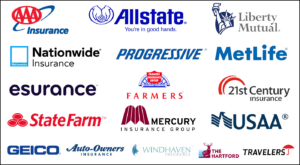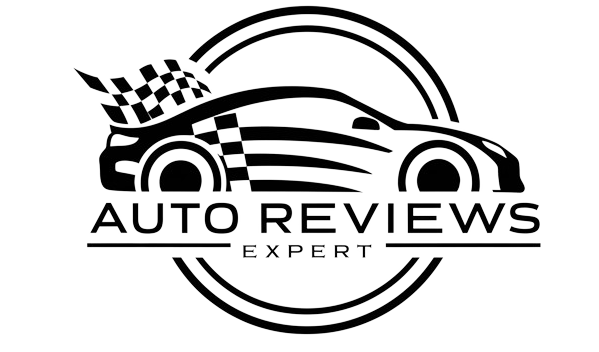In the complex world of business operations, securing the right car insurance is not merely a precaution—it’s a necessity. For companies that depend on vehicles, whether it’s a fleet of delivery trucks or a handful of executive cars, understanding and selecting the appropriate car insurance can safeguard your assets, ensure compliance with legal requirements, and protect your employees. This guide offers a thorough look into car insurance for companies in the USA, including the types of coverage available, how to choose the right policy, and why it’s crucial for your business.
Why Car Insurance is Essential for Companies
Legal Requirements
In the United States, car insurance is not optional but a legal mandate. Each state requires businesses to have a minimum level of liability insurance to cover damages and injuries caused in the event of an accident involving a company vehicle. Failure to comply with these regulations can result in substantial fines and legal issues that can jeopardize your business’s financial health and reputation.
Protecting Your Assets
For many businesses, vehicles represent a significant financial investment. Whether you have a fleet of trucks, a series of service vans, or a few luxury cars, comprehensive car insurance ensures that these valuable assets are protected against a range of risks. This includes accidents, theft, vandalism, and damage from natural disasters. Without adequate insurance coverage, the costs associated with repairing or replacing damaged vehicles can be overwhelming.
Liability Coverage
Car insurance is crucial for covering liability in the event that a company vehicle is involved in an accident. Liability insurance helps cover:
- Bodily Injury: Medical expenses, legal fees, and compensation for injuries caused to other people.
- Property Damage: Costs associated with damage to other people’s property, such as vehicles or buildings.
This protection helps shield your business from significant financial loss and legal action.
Employee Protection
If your employees use company vehicles, car insurance ensures they are protected in case of an accident. This coverage not only supports your employees but also helps mitigate the risk of costly legal claims against your business, providing peace of mind and financial stability.

Types of Car Insurance Coverage for Businesses
Understanding the various types of car insurance coverage available is crucial for selecting the right policy for your business. Here’s a breakdown of the key types of coverage:
Liability Coverage
Liability coverage is the most fundamental type of car insurance required by law. It includes:
- Bodily Injury Liability: Covers medical costs and legal fees if your vehicle injures someone. This includes hospital bills, rehabilitation, and lost wages.
- Property Damage Liability: Pays for damages caused to another person’s property. This can include vehicle repairs, building damage, or other property expenses.
Collision Coverage
Collision coverage helps pay for the repair or replacement of your company vehicle if it is damaged in a collision. This is true regardless of who is at fault in the accident. It’s especially important if you own expensive or high-value vehicles.
Comprehensive Coverage
Comprehensive coverage extends beyond accidents to cover damage caused by non-collision events. This includes:
- Theft: Protection if your vehicle is stolen.
- Vandalism: Coverage for damage from intentional acts of destruction.
- Natural Disasters: Protection against damages from events like hurricanes, floods, or hailstorms.
- Animal Collisions: Covers damage if you hit an animal, such as a deer.
Uninsured/Underinsured Motorist Coverage
This coverage protects your business if an accident is caused by a driver who has inadequate or no insurance. It helps cover medical expenses and repair costs when the at-fault party’s insurance is insufficient.
Medical Payments Coverage
Medical payments coverage, or MedPay, assists with medical expenses for you and your passengers if you’re injured in an accident. This coverage applies regardless of who is at fault and can help cover hospital bills, doctor’s visits, and other medical expenses.
Hired and Non-Owned Auto Coverage
If your business involves employees using their personal vehicles for business purposes, or if you rent vehicles, hired and non-owned auto coverage is crucial. This policy provides protection in cases where these vehicles are involved in an accident during business activities.
How to Choose the Right Car Insurance Policy
Selecting the right car insurance policy for your business involves several key considerations. Here’s a step-by-step guide to help you make an informed decision:
Assess Your Business Needs
Evaluate the nature of your business and how you use vehicles. Consider the following:
- Number of Vehicles: The size of your fleet or the number of company cars.
- Types of Vehicles: The kind of vehicles you own, from standard cars to specialized trucks.
- Usage: How the vehicles are used, whether for deliveries, client meetings, or other purposes.
- Risk Exposure: The potential risks associated with your business’s vehicle use.
Compare Insurance Quotes
Obtain quotes from multiple insurance providers to find the best coverage at competitive rates. When comparing quotes, consider:
- Coverage Limits: Ensure that the coverage limits meet or exceed your needs.
- Deductibles: Evaluate the deductibles and how they affect your premium and out-of-pocket expenses.
- Additional Coverage Options: Look for optional coverage that may be beneficial to your business.
Understand Policy Exclusions
Thoroughly review the insurance policy to understand what is not covered. Common exclusions might include certain types of damage or specific scenarios. Knowing these exclusions can help you avoid unexpected expenses and adjust your coverage accordingly.
Consider Additional Coverage Options
Depending on your business requirements, you might want to add extra coverage options to your policy. Some additional coverage types to consider include:
- Roadside Assistance: Provides help if your vehicle breaks down or needs emergency repairs.
- Rental Reimbursement: Covers the cost of renting a vehicle while your company car is being repaired.
Review Your Policy Regularly
As your business evolves, so should your insurance policy. Regularly review and update your coverage to reflect changes in your fleet size, vehicle types, or business operations. This ensures that your policy remains relevant and provides adequate protection.
Benefits of Working with an Insurance Broker
Navigating the complexities of car insurance can be challenging. Working with a knowledgeable insurance broker offers several advantages:
- Expert Advice: Brokers can provide tailored advice based on your specific business needs and risks.
- Access to Multiple Providers: Brokers have access to a range of insurance providers and can help you find the best policy.
- Custom Solutions: They can help customize your coverage to address unique risks and requirements.
Common Misconceptions About Car Insurance for Businesses
“Business Car Insurance is the Same as Personal Car Insurance”
Business car insurance is distinct from personal car insurance. It’s specifically designed to cover the additional risks and responsibilities associated with using vehicles for business purposes. Personal car insurance typically does not provide adequate coverage for business use.
“I Only Need Basic Liability Coverage”
While basic liability coverage is required, it often doesn’t offer sufficient protection for businesses. Comprehensive and collision coverage can protect against a wider range of risks and prevent significant financial losses.
“Insurance is Too Expensive for Small Businesses”
Many small businesses mistakenly believe that car insurance is prohibitively expensive. However, there are numerous options available, and working with an insurance broker can help you find affordable solutions that fit your budget.
Conclusion
Car insurance is an essential component of managing a business that relies on vehicles. It provides critical protection for your assets, ensures compliance with legal requirements, and supports your employees. By understanding the types of coverage available, assessing your business needs, and working with a reputable insurance provider, you can secure the right policy to protect your company and its operations.
Investing in comprehensive car insurance today will help you mitigate risks, avoid potential financial pitfalls, and ensure smooth business operations. For more personalized advice and to explore insurance options tailored to your business, contact an experienced insurance broker who can guide you through the process.
Also Read

